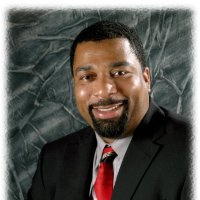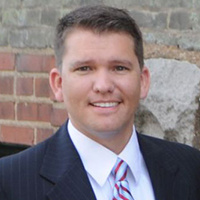 Nashville Misdemeanor Lawyers, Tennessee
Nashville Misdemeanor Lawyers, Tennessee
Not enough matches for Nashville Misdemeanor lawyer.
Below are all Nashville Criminal lawyers.
Sponsored Lawyers
1-10 of 55 matches
Criminal, Accident & Injury, Divorce & Family Law, Estate
William Stover is an experienced Tennessee attorney who provides premier legal services to clients seeking help in the areas of personal injury, criminal defense, family law, estate planning and other types of civil litigation. In practice for more than a decade, Mr. Stover has made a name for himself as one of Nashville’s top lawyers when it comes to supporting his clients comprehensively. He goes above and beyond to achieve the best results possible for them, whether that means using advanced negotiation and communication skills, making himself available after hours or litigating a matter in court.
(more)Criminal
I am Tommy Overton, and I have represented hundreds of clients for over 30 years as a criminal defense lawyer in Nashville, Tennessee. If you have been charged with a crime, do not wait. Take immediate action, and contact me to learn about your options. My vast experience as a criminal defense attorney has taught me many things, one of them being how frightening it can be to be charged with a crime. I have represented numerous people who are facing serious, life-changing criminal charges. When you hire me as your defense lawyer, your problems become my problems. Your worries become my worries. When we meet for the first time, I can give you the facts, explain your options and help relieve some of the tension you are feeling. You will have my cellphone number and I am available to answer your phone calls at all hours of the day and night. Criminal law is my life’s work — it has been for over 30 years — and I do it very well.
(more)Criminal, Felony
Practicing since 1981, Mike has seen it all. Mike is an excellent trial attorney. He is both a master of the law and quick on his feet. No case is too big for Mike. Contact him directly at (615) 351-6891.
(more)Other, Divorce & Family Law, Criminal, Elder Law
Mr. Saylor is a partner at the firm of Fort, Holloway & Rogers, LLC. A trial attorney at heart, Stuart Saylor practices primarily in the fields of family law, criminal defense, orders of protection, guardianships, and conservatorships. He is a native of Franklin, and is focused on providing quality legal services to middle Tennessee. Mr. Saylor takes great pride in being available and responsive to his clients. A large portion of Mr. Saylor’s divorce cases involve issues such as custody, parenting plans, child support, spousal support (alimony), property valuation and division, and the potential impact of premarital agreements on such litigation. Mr. Saylor also handles post-divorce cases including parenting plan modifications, custody modifications, child support modification, and termination or modification of alimony. In family law cases, Mr. Saylor sets realistic and achievable goals that his clients can attain. Most family law cases settle before trial. Mr. Saylor approaches cases strategically to ensure that his clients get the best possible settlement in an efficient manner. On the other hand, Mr. Saylor has years of courtroom and trial experience, and is prepared to litigate and be your advocate in court when necessary. A divorce or family law case can be one of the worst and most emotional moments in a person’s life. Mr. Saylor is there for his clients to guide them through that process. A former prosecutor, Mr. Saylor has used that training and knowledge to more effectively represent individuals accused of crimes. Mr. Saylor has successfully represented clients accused of sexual assault, rape, attempted first degree murder, aggravated assault, domestic assault, sale of drugs, simple possession of drugs, driving under the influence (DUI), theft, aggravated burglary, speeding, and traffic tickets. He has experience with just about every type of criminal charge. If you have been charged with a criminal offense in middle Tennessee, you need to understand the possible consequences and penalties. Mr. Saylor explains to his clients facing criminal charges exactly what they are facing and how they can best resolve the charges on their terms. Orders of protection are a tool to protect domestic abuse victims or victims of stalking or sexual abuse. Mr. Saylor has obtained orders of protection on behalf of countless clients in order to secure the protection that they deserve. However, some people are wrongfully accused of such offenses and have orders of protection filed against them. Orders of protection can have a significant and lasting impact on the accused’s civil rights, including the ability to own firearms and guns. Mr. Saylor has successfully defended numerous order of protection cases, with the result that the order of protection was completely dismissed. Prior to his work in private practice, Mr. Saylor served honorably on active duty in the United States Air Force Judge Advocate General’s (JAG) Corps. Mr. Saylor worked as both a prosecutor and defense attorney, and litigated dozens of criminal trials in front of judges and juries. In 2014, he deployed to Afghanistan where he served as the top legal advisor to a Special Operations Task Force. Mr. Saylor is a graduate of the University of Tennessee- Knoxville (Bachelor of Arts, summa cum laude), and the University of Tennessee College of Law (cum laude; Concentration in Advocacy and Dispute Resolution).
(more)Criminal, Felony, DUI-DWI, Misdemeanor
What to know: We are a full-service law firm that focuses on the interest of our clients. I practice in the areas of: Bankruptcy Law, Criminal Law, Contracts & Property Disputes. I have represented hundreds of clients on a number of different issues from state court to the federal courts. I strive each day to provide competent and sound legal representation. Enjoys: spending time with his children and family, restoring homes, coaching his children’s soccer team and spending time on his farm.
(more)








